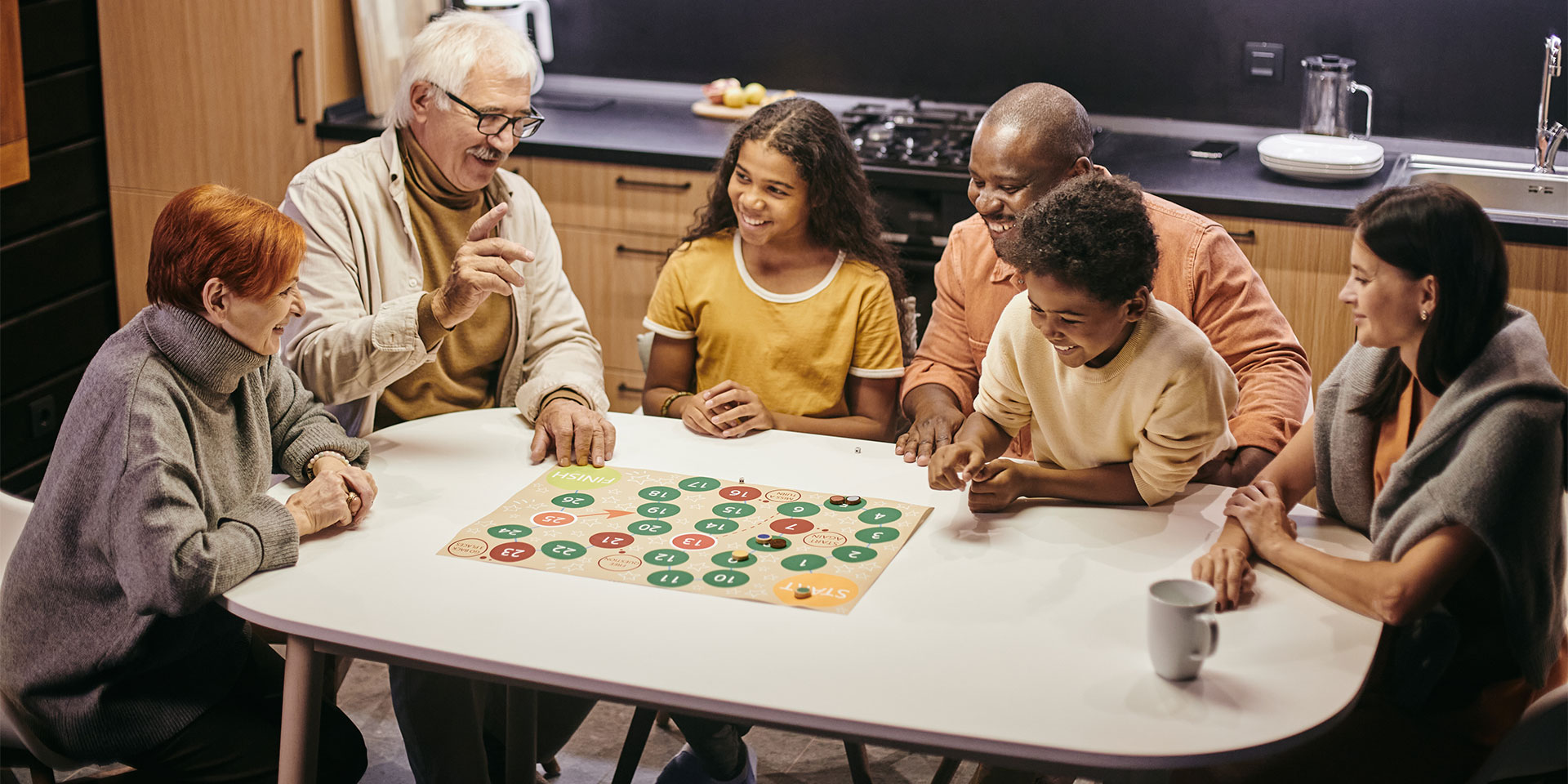“So, is it like Monopoly?” The response is often amusing when a family member, friend or acquaintance discovers I’m “into board games”. Most are taken aback, shocked that an otherwise seemingly well-adjusted adult man would find so much enjoyment in a children’s hobby.
Many of us still have a copy of Risk, Balderdash or Cluedo decaying in some obscure cupboard of our home, untouched unless we bring one out on a rainy Sunday afternoon. Games like these occupy a nostalgic space in our lives. Like tree forts, mud pies or LEGO, they transport us to a simpler time without smartphones, streaming services or TikTok.
They’re a reminder of how we used to connect with each other before modern distractions… that is, until your brother gets a lucky roll in Monopoly, slowly driving everyone else bankrupt. Let’s be honest—Monopoly is a game that outstays its welcome no matter if you’re a casual or hardcore gamer. After the ordeal is over, you swear you will never again play the game, only to pull it out again next Christmas.
Gaming has changed
The tabletop gaming scene has changed significantly since my childhood: from Wingspan, a game about collecting gorgeous birds that has sold over 1.3 million copies worldwide, to Ticket to Ride, the ever-popular train game, to the unfortunately in-theme co-operative title Pandemic. No matter what you find enjoyable, there’s likely a game that can scratch your particular itch. If you’re into heavy economic market manipulation, there’s Brass or Food Chain Magnate.
If you like collecting pretty things, there’s Splendor or Point Salad. If the idea of laying down tiles next to each other appeals to you, there’s Cascadia or Patchwork. If you just want something fun to play with a large group of people, Codenames and Anomia are consistent crowd pleasers. Heck, if you want to play games solely about trains and manipulating the value of the companies that operate them, there’s an entire sub-genre dedicated to it. This doesn’t scratch the surface of the hobby, which is as deep as it is wide. From mass-market appeal to the most obscure, there’s a place in tabletop gaming for almost anyone.
Board gaming has been incredibly helpful for my own personal growth. I’ve played video games since I was a kid and get nostalgic for Age of Empires, Crash Bandicoot and Goldeneye 007 but it wasn’t until adulthood that I was introduced to titles such as 7 Wonders, Agricola and Carcassonne. These and a few others opened my eyes to what tabletop gaming could be and disabused me of the notion that it was a hobby for only children. The hobby has also taught me some surprising lessons.
Learning to pivot
Whether in a board game, video game or a sports game, we’ve all experienced “that guy”. He (or she) takes the game far too seriously and when they inevitably experience the disappointment of losing, they don’t take it well. “Sore loser”, “spoilsport”—the nicknames aren’t endearing and neither is the awkward atmosphere their behaviour instils. It’s easy to fall into this trap playing board games—whether a dice roll didn’t go your way, you drew the wrong card or another player performed an action that hurt your strategy, there are a million things that can go wrong.
Learning to cope with such challenges is integral to playing well. If you can’t pivot your strategy mid-game, you may be at the bottom of the pack when final scoring happens. Sometimes the winner isn’t the one who executed their strategy flawlessly from start to finish but rather the one who recognised the changing game state and shifted their plan to exploit it.
Take my recent play of Gugong, a game set in imperial China. It has a veritable buffet of possible actions but also features one central activity all players must complete if they wish to win. Toward the end of the game, my friend Michael picked up a bonus that made it so that any time one of us performed said central activity, we would lose one point and he would gain one point. Though it may seem small, this attritional bonus cascaded as Michael slowly robbed us of points, giving him the win in the end.
Life can be like that game of Gugong—our ability to pivot often determines our success or failure. I lost that game because I stubbornly stuck to my strategy and didn’t change my game plan when I should have. How often do we miss out on opportunities in our professional lives, relationships or spirituality because we’re too stuck in our ways to make a necessary change?
As the apostle Paul once said, “Make good use of every opportunity you have, because these are evil days” (Ephesians 5:16, GNT). There are few guarantees in life and though Paul’s outlook might seem bleak, he has a point. It is far better to live life to the full than to resist change and come to the end of your time on earth with regret.
Learning to include
What do a pastor, an auto-electrician and the lead singer of a heavy-metal band all have in common? However unlikely, there was one thing that brought us together: Scythe. It’s a grand strategy game set in an alternate-history version of WWI-ravaged Europe. Oh, and there’s also giant mechanised robots. Yes, the concept is bananas—but it’s also glorious. Just after New Zealand’s first Covid-19 lockdown had lifted in 2020, a small group of us embarked on a staggering eight-session game, following a gradually unfolding narrative (known colloquially as a “legacy game”).
After two months of isolation, we were eager for the opportunity to do something, anything, with other human beings. What grew out of this was a game group made up of people from many different walks of life. We didn’t always agree with each other, but the sacred bond we shared at the table cemented us into an unlikely group of friends.
When you share common ground with someone, it is much more difficult to see them as ‘other’—someone who you wouldn’t normally associate with. As a consequence, while you might not come over to their side of thinking, it may give you an added layer of appreciation for their point of view. It also naturally increases the empathy you feel toward them. This is important, as empathy is one of the first hurdles we face in overcoming prejudice.
Learning to connect
As a millennial, I am all-too-aware of the insidious effect mobile gaming has on me and my peers. That’s one of the other reasons I’m so fond of tabletop gaming. It’s a much more analogue experience in an increasingly digital world. The simple tactility of wood and cardboard flies directly in the face of the flashy, over-the-top nature of mobile games and their predatory systems designed to manipulate our dopamine response.
Whereas mobile gaming rewards quick decision-making, tabletop games reward careful planning, forward thinking and interacting cleverly with your fellow players. Though the games I play are often beautifully produced and aesthetically modern, they still possess an old-school sensibility.
This act of slowing down also provides space for connection. I’ve had some incredibly meaningful conversations around the table both during and after the game. Like a thoughtfully curated dinner party or an intimate café, participating in tabletop gaming opens people up to talk about the important things in life. Many people I’ve played games with haven’t shared my faith beliefs but, for whatever reason, they are often more willing to talk about spirituality after we’ve spent time racing plastic miniature bicycles in Flamme Rouge or building space colonies in Terraforming Mars.
Tabletop gaming is a hobby like many others. It is expensive, time-consuming and yes—nerdy. I’m okay with that because it allows me to stretch my brain, explore new ideas and connect with people I may never have otherwise had the chance to. I hope I’ve inspired you to go beyond what you know and try a new game. At the very least, the next time you meet someone who is into board games like I am, you’ll have something more meaningful to add to the conversation than, “So, is it like Monopoly?”
Jesse Herford is a pastor and associate editor for the Australia/New Zealand edition of Signs of the Times. He lives in Sydney, Australia with his wife, Carina and their miniature schnauzer, Banjo. A version of this article first appeared on the Signs of the Times Australia/New Zealand website and is republished with permission.




















